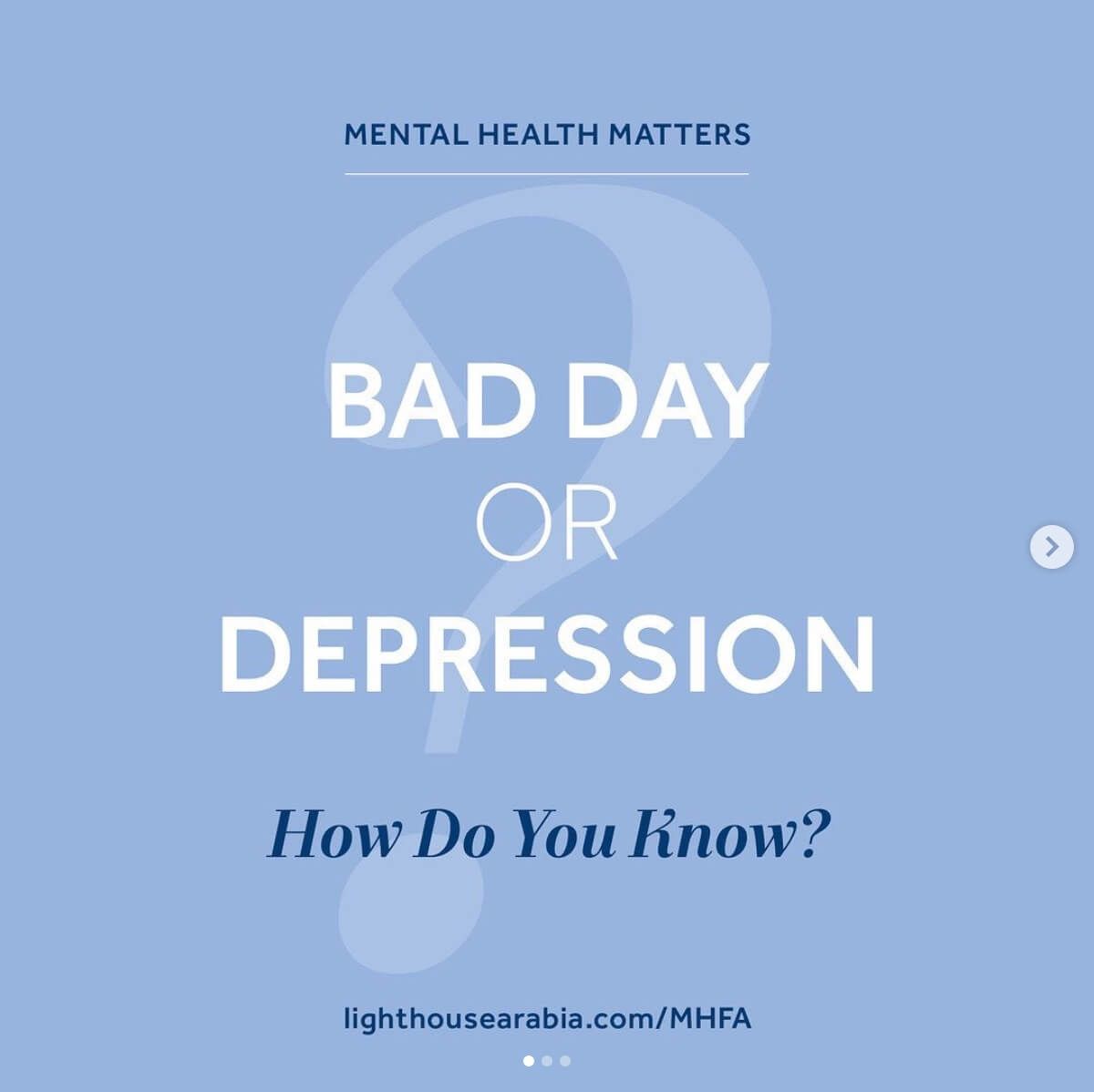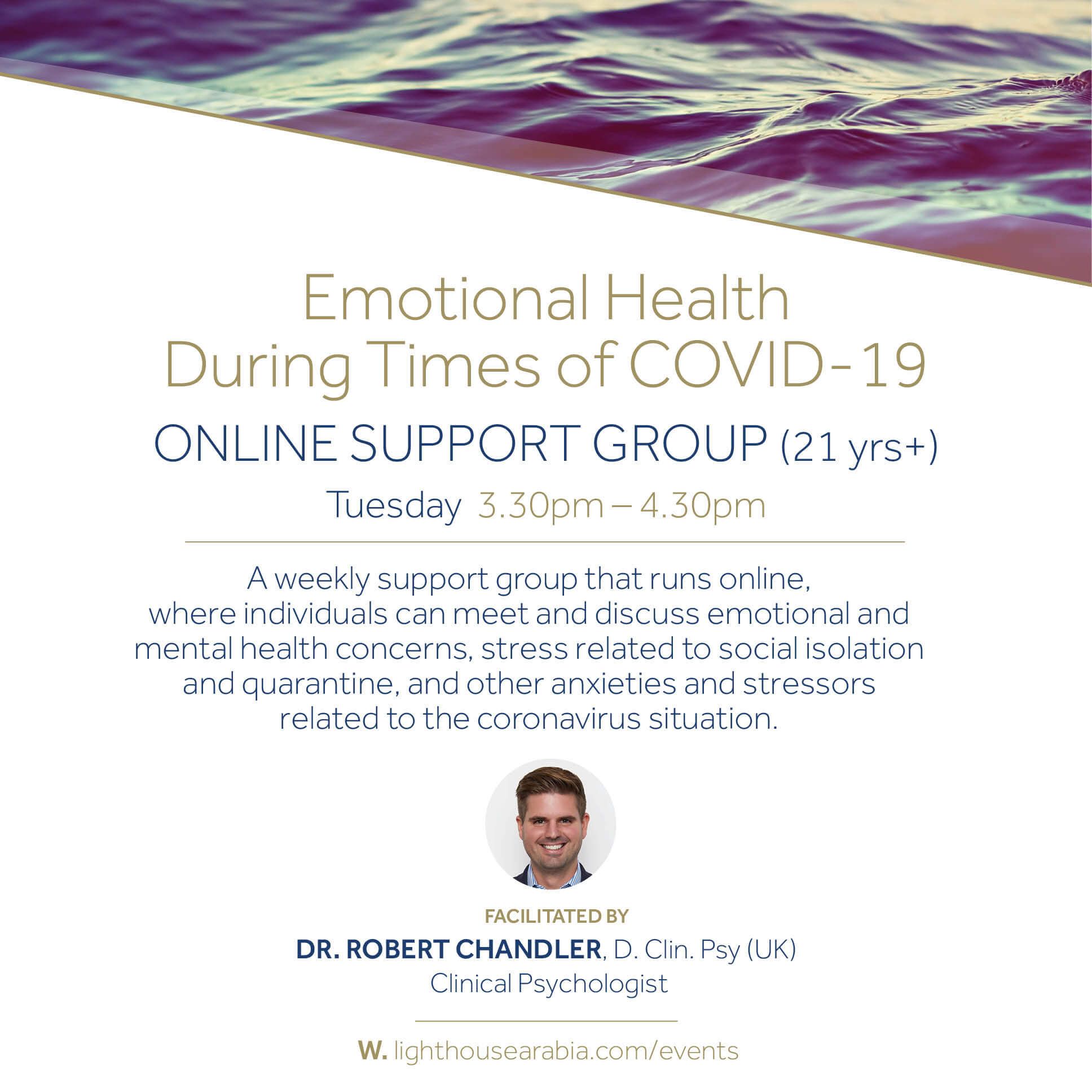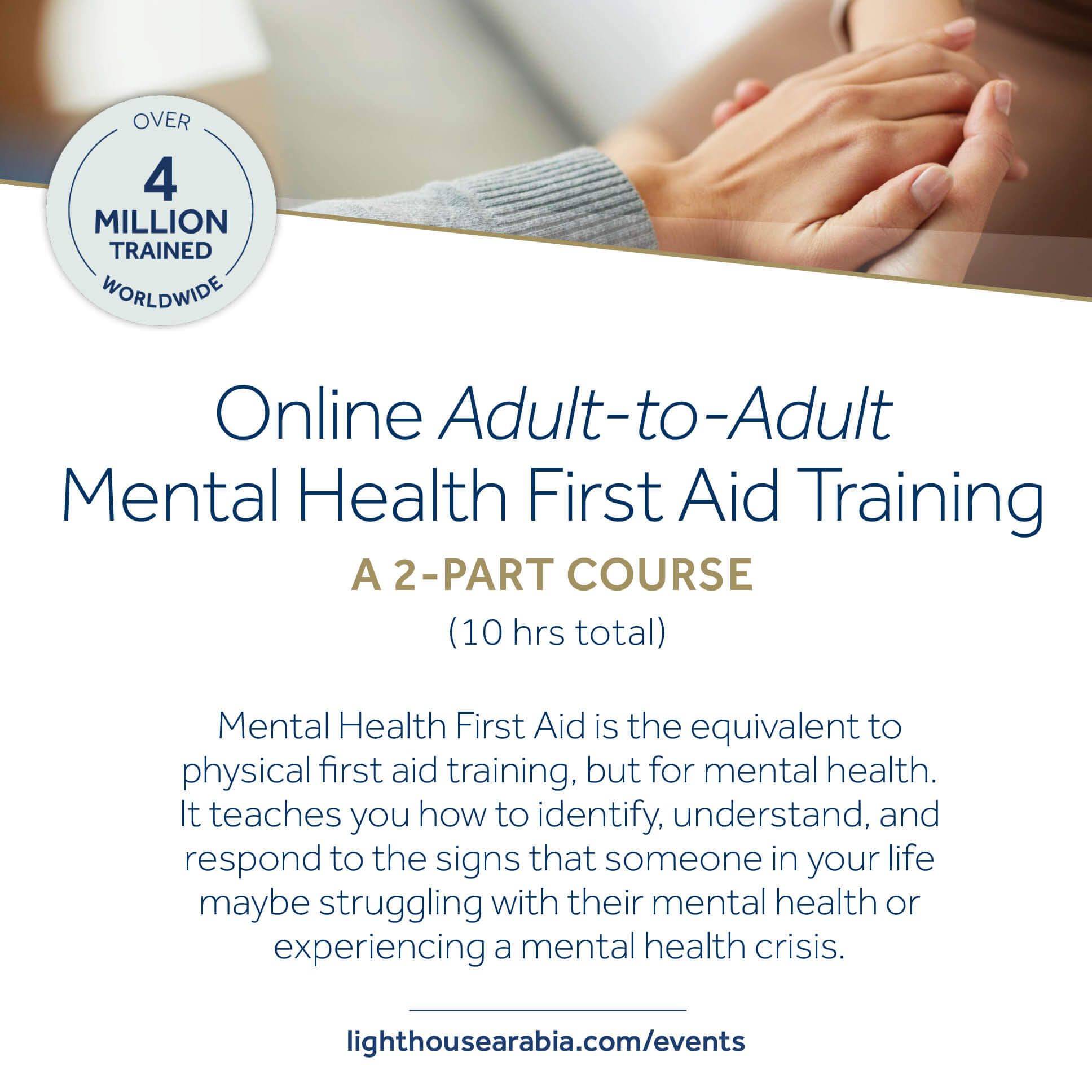A psychiatrist is a medical doctor who specializes in mental health. Psychiatrists are qualified to assess both the mental and physical aspects of psychological problem.
Psychiatry
What is it?
The LightHouse Arabia has a team of highly qualified, consultant psychiatrists who are medical doctors with specific training in the assessment, diagnosis, treatment of mental illnesses; they are licensed to prescribe medication based on an individual’s mental health needs.
Who needs it?
People come to see a psychiatrist for many reasons, from troubles coping with the stresses of everyday life to severe mental illnesses like bipolar disorder. Your doctor may refer you to a psychiatrist – or you may seek help independently – for concerns including:
- Addictions
- Aggressive and violent behavior
- Anxiety
- Attention problems
- Bereavement and grief
- Bipolar disorder
- Depression
- Hallucinations
- Mood disorders
- Panic attacks
- Paranoia
- Personality disorders
- Prenatal/postnatal depression
- Relationship difficulties
- Self-harming
- Sleep disorders
- Stress
- Suicidal thoughts
Therapies and Services
-
Psychiatric consultations
-
Medication management for teens and adults with conditions including depression, eating disorders, schizophrenia, psychosis, bipolar disorder, stress, adjustment issues, trauma, aggressive behavior, phobias, anxiety, OCD, personality disorders, drug and alcohol addiction, and ADHD
-
Medico-legal assessments, occupational health reports, and forensic psychiatric risk assessments
-
Second Psychiatric Opinion Service: an easy and invaluable service for individuals seeking a second opinion on their diagnosis, treatment plan, or any other aspect of their mental health care. Appointments can be online or in-person with one of our seasoned and compassionate psychiatrists. Please note, those living outside of the UAE will not be given any prescriptions, however, a report can be provided for an additional charge, that you can share with your medical provider or employer.
-
Seminars on mental wellbeing and psychiatry
Download Resources
Frequently Asked Questions
What is a psychiatrist?
What is the difference between a psychiatrist and a psychologist?
A psychiatrist is a medical doctor (graduated from medical school and completed residency) with specialized training in psychiatry. A psychiatrist may be able to conduct psychotherapy and prescribe medications and other medical treatments. A psychologist usually has a master’s or doctor’s degree in clinical psychology. Psychologists treat mental disorders with psychotherapy, and some specialize in psychological testing.
What kind of conditions does a psychiatrist treat?
Psychiatrists treat various problems such as panic attacks, acute stress, hallucinations, thoughts of suicide or hearing "voices”. Some other problems that can be treated by psychiatrists include: feelings of sadness, mood swings, hopelessness, concentration difficulties, insomnia, worthlessness, psychosomatic pain, obsessive thoughts, addictions, adjustment problems or anxiousness which impair a person’s daily functioning.
What age can someone begin seeing a psychiatrist?
Roughly half of all lifetime mental health problems start by the mid-teens and threefourths by the mid 20s. There are children younger than 16 years old that may be needing to meet with a child psychiatrist. There is no particular age where someone can begin seeing a psychiatrist; rather, it is the severity of the symptoms that make it essential to refer to a psychiatrist. It is common practice for an adult psychiatrist to meet individuals for assessments and consultations from the age of 16 years and above.
How is my confidentiality assured?
The LightHouse Arabia takes strict measures to protect your confidentiality, privacy and security in regards to your care, information and records. Your psychiatrist is licensed by DHA and bound to uphold policies and procedures surrounding protection of each client's confidentiality.
Can I bring someone to the appointment with me?
Yes, of course. If you feel comfortable with being accompanied by a close relative, friend or partner, you can bring this person to the appointment with you.
What kind of treatment is provided? Do psychiatrists only give out medication?
Psychiatrists use a variety of treatments depending on the needs of each patient. These include, but are not limited to medication and different forms of psychotherapy
What can I expect during my first appointment?
We can think of the first appointment as being an evaluation consultation. You may need to meet again to complete this psychiatric evaluation. The psychiatrist will ask you a range of questions – some about your concerns and symptoms, others about your family, your general health and other things, in order to better understand what might be causing your problem. By the end of your first or second session, the psychiatrist will have a treatment plan for you to begin.
How often do I have to see a psychiatrist?
A treatment plan and frequency would be decided together with your psychiatrist, depending on your needs. For those who are early in treatment, either weekly or bimonthly follow-ups would be beneficial. Patients on long-term medication treatment will need to meet with their psychiatrist periodically to monitor the effectiveness of the medication and any potential side effects.
Can medication be prescribed with an online web-based consultation with The LightHouse Arabia?
No, it is not possible to issue a prescription with an online web-based consultation.
What happens if I run out of medication?
Discontinuing a medical treatment taken regularly in a sudden and unexpected way may cause severe symptoms such as anxiety, restlessness and discomfort and it is highly unadvisable. If you are about to run out of medication, you can get in touch with us. Our Front Desk team will be able to support – whether that be by scheduling you a psychiatric appointment or doing a prescription refill in accordance with your psychiatrist.
Do I have to go on medication?
Psychiatrists may provide medication management and often prescribe medications in combination with psychotherapy. Different options for treatment will be discussed at the end of your session such as medication, psychotherapy, referral for specific forms of psychotherapy, referrals for further medical evaluations to rule out any possible underlying medical conditions that may contribute to your symptoms
How do I know if I need medication?
Everyone may experience difficult times throughout their lives, accompanied by deep emotions and distressing symptoms. However, if these disturbing symptoms (such as irritability, mood swings, sadness, lack of concentration, sleeping disturbance, changes in eating habits, changes in your temperament , difficulties in your relationship with others) persist and cause difficulty in your ability to function, then it may be worth having a psychiatric assessment where it will be decided if you could benefit from medical treatment in order to control your symptoms.
How and when do I take it, and when do I stop taking medication?
Your psychiatrist along with you will decide if a medical treatment is suitable for you. Once this is considered, you will be informed about the course of the treatment, aim of the treatment, possible side effects, function mechanism and also duration of the treatment.
How long does it take for the medication to work?
Various classes of psychiatric medications are available. Some medications (I.e. sedatives to treat anxiety and insomnia) start working within hours. With most of the medications, it will take between 1 – 3 weeks before changes begin to occur. Medications usually take 6 – 8 weeks to become fully effective.
Are there long-term side effects to the medication?
Medication for mental health issues is generally safe and effective when used as prescribed and according to the medical advice. As with any other medication, some medicines that are used in psychiatry may have long-term side effects although this applies to only a small amount of individuals with severe mental health disorders that need to be treated with some particular medication for life time.
Can I become dependent on medication?
The most widely prescribed medication for treating common mental health problems like depression, anxiety, mood swings, irritability, sleeping disturbances do not cause any dependency as they do not have habit forming properties. Nevertheless, some medication that may be used to treat severe anxiety as needed with rapid onset of effect (PRN) can cause dependency although this requires usually taking high doses for a prolonged period of time. Your psychiatrist will inform you in detail about all possible risks if you require prescription of such medication.
Am I going to need medication forever?
Treatment with medications will not be indefinite. Some chronic mental health disorders may need to be treated for years, mostly the treatment is continued for a minimum of several months and may last up to a year.
What other treatment options are there?
Various forms of psychotherapy, light therapy, Electroconvulsive therapy, deep brain stimulation, vagus nerve stimulation, transcranial magnetic stimulation are some possible treatment modalities that could be conducted in different psychiatric settings.
Can I get medication prescribed for my mood?
Many effective medications for mood problems exist. The most commonly prescribed are the new generation antidepressants. Antidepressants will help to lift your depressed mood and diminish other symptoms of depression as well. Another group that are called mood stabilizing medications will help to balance the episodes of wild mood swings.
Can psychiatrists help with patients struggling with burnout?
Burnout is a complicated mental health problem that is characterized by feelings of energy depletion or exhaustion, increased mental distance from one's job and/ or feelings of negativity or cynicism related to one's job. It co-exists or can lead to other mental health problems such as depression, anxiety, racing thoughts, irritability, detachment. If these concerns remain unaddressed, they can lead to a prolonged period of impaired functioning, which would make recovery and finally return back to the usual occupational routines more difficult. Your psychiatrist can help you identify the problem, help you with evidence- based medical treatments towards this condition and suggest further treatments. If there is also a need for medical sick leave, it is only a psychiatrist, as licenced physician, who can issue a medical sick leave to submit to the employer/DHA.
What can I do if I am experiencing an emergency?
You can contact The LightHouse Arabia during working hours and request to speak to your clinician.
Opening Hours:
Monday - Friday: 8am - 8pm
Saturday: Closed
Sunday: 9am - 6pm
Contact us on: +971 (0)4 380 2088
Outside working hours, if the nature of the emergency is so severe that you may find yourself being at high risk you should be admitted to Al Amal hospital.







